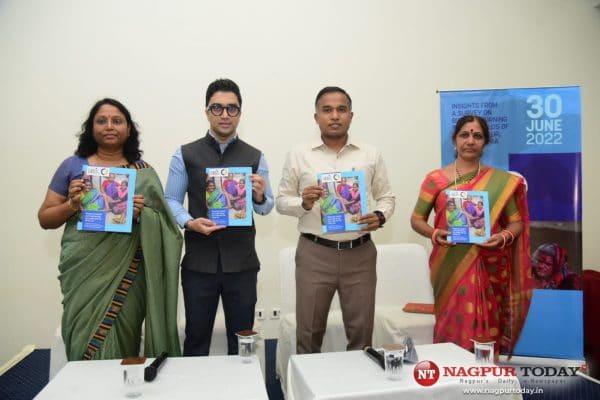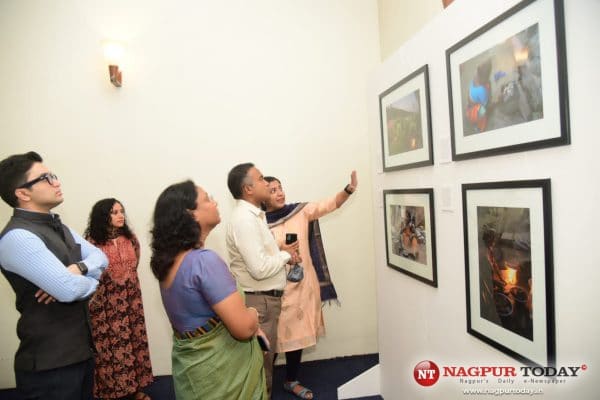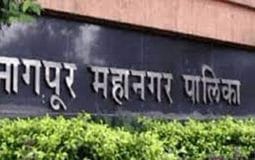
Nagpur: Poonam Markam, a 20-year-old daily wager, is in the ninth month of her pregnancy.
A resident of Siddheshwari slums in Nagpur, Poonam continues cooking on a chulha (brick stove) to feed her family of five. With a meager income of Rs. 8,000 per month, her family cannot afford to refill LPG every month putting Poonam and her unborn under the grave risk of health impacts that come with inhaling toxic fumes from the chulha.
Poonam’s case is just a representation of the hardships that women in urban slums of Nagpur undergo while cooking and feeding their families in the absence of affordable clean fuel. A survey conducted by Warrior Moms, a countrywide mothers network and the Centre for Sustainable Development (CFSD) has revealed that 43% households in the slums of urban Nagpur continue to use chulhas for cooking and heating even as most of them have LPG connections.
The survey has revealed that 81% women who use chulha experienced coughing compared with 23% respondents who only use LPG while 65% respondents using chulha faced issues like eye irritation as compared to 18% who only use LPG.

Based on the survey, a policy report titled ‘Women’s Health and Well-being, Key Indicator of Clean Air: Insights from a survey on biomass burning in households of Urban Nagpur, Maharashtra’ was released at the Chitnavis Centre on Thursday.The report was released by Shri. Radhakrishnan B, Commissioner, Nagpur Municipal Corporation. Narratives of women’s struggles with biomass burning in the slums of urban Nagpur and the health ramifications of their constant exposure to chulhas were also presented in the form of a photo exhibition with pictures by Padmashri Sudharak Olwe.

Radhakrishnan B, Commissioner, Nagpur Municipal Corporation said, “It is important to create awareness about the harmful effects of using biomass in urban slums. While policy level interventions play a crucial role in providing access to clean fuels to all, it is important to deal with socio-cultural beliefs that deter people from making a transition to LPG.”
At a panel discussion held at the launch of the Policy report, Pulmonologist Dr. Sameer Arbat said, “Using biomass can have grave health ramifications on women and children and they are susceptible to respiratory issues, asthma and sometimes more serious health impacts like tuberculosis and lung cancer. Women are at the risk of facing adverse pregnancy outcomes such as stillbirths, low birth weight, intrauterine growth retardation, and infant mortality due to constant exposure to smoke.”
Leena Buddhe, founder-director, CFSD said, “Our survey reveals that despite several schemes for providing cleaner fuels, women in slums still continue to inhale the toxic smoke from chulhas, which puts their health at risk each single day. This report should serve as a wake up call to the government and we hope that the action plan to control air pollution in Nagpur prioritises shifting to clean fuel for cooking and allocates appropriate budgets to tackle the issue.”
A 50-year-old woman (name withheld on request) from New Vaishali Nagar said, “We use only chulha for cooking. Our monthly income is around ₹ 7,000. We buy one cylinder a year from the black market during the rainy season as it is very difficult to burn chulha. An LPG connection is a far-fetched dream for us as its rising costs makes it unaffordable.” She further added that several women like her who use the chulhas face severe eye irritation, cough while cooking.
Rekha Jogdand, a Warrior Momfrom Adivasi Nagar in Nagpur said, “Women who are forced to use chulhas have very little idea about the health ramifications of the short and long term exposure to the fumes from the chulhas.What adds to their woes are social and cultural beliefs like food cooked on chulhas tastes better, which is a big deterrent for families to do away with biomass completely. The government and local bodies should involve women’s groups to design awareness campaigns to encourage people to make the shift towards clean cooking fuels.”
Survey Methodology
The survey was conducted in 1,500 households across 12 slum colonies of urban Nagpur: KhamlaVasti, Dipty Signal, Kachipura, Adivasi Nagar, New Vaishali Nagar, Surendragadh, Bhandewadi, Bhankheda, Shivaji Nagar, Jaitala, Indiranagar and Balabhaupeth. The households were identified with the help of purposive random sampling. Most respondents were women with 70% being from the Other Backward Castes (OBCs) and Schedule Castes (SCs). Survey data was collected manually and then entered into R software for quantitative analysis. Additionally, qualitative data was collected through semi-structured interviews of people in the selected slums.

Key Findings of the Survey
43% respondents surveyed during the study said that they use both LPG and chulha while 57% respondents said that they use only LPG. About 7% of respondents said that they use only chulhas.
The respondents who use chulha, gather firewood, which is mainly the job of the women in the household and reported spending anywhere between 4 and 5 hours every week in the activity. Those who buy firewood spend anywhere between INR 100 to INR 400 every month. Most families reported an increased use of chulha during winters to meet the additional requirement for heating water.
The study found several health ramifications of using chulhas especially among women and young children as their exposure to the chulha is the highest in the family. 81% respondents who use chulha said that they experience coughing compared with 23% respondents who use only LPG. Similarly 65% respondents who use chulha face eye irritation as compared to 18% who only use LPG.
The survey also revealed that there was poor awareness among people about schemes delivering access to clean cooking fuels including the much touted Pradhan Mantri Ujjwala Yojana (PMUY). Less than 3% respondents who reported having an LPG connection had received it under PMUY and the remaining respondents, especially the ones that continue to use chulha, were unaware of this scheme. Many said that during winters, they buy cylinders from the black market in the absence of a legal connection.
Some of the key reasons for households to continue their use of biomass for cooking and heating were: Lack of awareness about schemes for clean fuel and the advantages of switching to LPG, unaffordability of LPG cylinders with the growing costs of refills, cultural norms with respect to food taste such as the food on chulhas tastes better and to meet the additional fuel needs for heating water during the winters when it gets cold.
Policy Recommendations
Based on the survey, Warrior Moms and CFSD make the following recommendations to be taken up by the following Departments in Government of Maharashtra: Ministry of Environment and Climate Change, Public Health Department, Maharashtra, Maharashtra Energy Development Agency and the Nagpur Municipal Corporation.
Action plan to control air pollution in Nagpur should prioritize shifting to clean fuel for cooking and heating by ensuring an adequate budget and a plan with timelines to implement the same.
Identify vulnerable households from a lens of social, economic status and health indicators to provide subsidies for LPG and other alternatives that would work for the women and reduce the family’s financial burden. Some of the cleaner alternatives including smokeless chulhas and electric chulhas run on solar panels can be tested and scaled up across the state.
State level policy direction to recognise the link between women’s health and air pollution and investment in research and development for clean fuel alternatives. Design behavior change campaigns that will address the social and cultural norms and make the transition to cleaner cooking fuel just and equitable.
The State should actively think of supplementing the PMUY, which is not sufficient, to increase adoption of LPG with a scheme at State level that addresses the gaps in the PMUY
About Warrior Moms
Warrior Moms is a collective of mothers from all over India fighting for children’s right to breathe clean air by creating awareness on sources of air pollution and climate change, educating and empowering citizens to take action and engaging with decision makers to enforce regulations. Its vision is to create a society where clean air, our basic human right, is accessible to all, especially children for a healthy and productive life.
About CFSD
Centre for Sustainable Development (CFSD) is a non-profit organization started in 2004 in Nagpur, Maharashtra with a vision to facilitate participatory and sustainable development processes to make human settlements and living environments equitable. It supports an integrated development approach by converging various local initiatives, national and regional programmes in the fields of urban environment, social and technical infrastructure, poverty alleviation, education, health and environment. CFSD works on the issues of land rights of slum dwellers in close coordination with the urban local body and also works extensively in the field of environment handling issues such as Solid Waste Management and Air Pollution.











